
President Mahmoud Abbas to discuss the economic crisis facing the Palestinian Authority with US Secretary of State John Kerry. (Photo: Ma’an)
Cairo, 23 Jumadil Awwal 1436/14 March 2015 (MINA) – President Mahmoud Abbas arrived in the Egyptian coastal town of Sharm el-Sheikh on Friday, where he is expected to discuss the economic crisis facing the Palestinian Authority with US Secretary of State John Kerry.
The talks are part of the Economic Development Conference hosted by the Egyptian government, and are expected to include King Abdullah II of Jordan, as well as Egyptian President Abdel-Fattah El-Sisi.
Global political and business leaders have gathered for the three-day conference primarily to look into investing in Egypt after four years of tumult, Ma’an News Agency quoted by Mi’raj Islamic News Agency (MINA) as reporting.
Last month, the US voiced fears that the Palestinian Authority may be teetering on the brink of collapse due to a lack of funding, as Israel withholds taxes and donor aid stalls.
Also Read: Israeli Attack on Syria Kills 13, Including Women and Children
“We continue to be concerned about the PA,” a State Department official told reporters traveling with Kerry on his plane.
“It’s really part of the continuous, ongoing conversation we’re having with the critical stakeholders here,” the official said, asking not to be named.
Kerry led a bid last year to try to reach an Israeli-Palestinian peace deal, but his efforts collapsed amid bitter recriminations by both sides.
Egypt courts foreign investors
Also Read: Bin Salman: Normalization With Israel Only Possible With Concrete Guarantees of Palestinian State
Over 100 countries are taking part in the conference, which President Sisi hopes will bolster both foreign investment in Egypt and his international standing.
Restoring the economy and attracting foreign investments that have nosedived in recent years have been key tenets of Sisi’s presidency, with this week’s conference already marked down as a milestone by his government.
Conference consultant Richard Attias told AFP that “more than 30 projects will be unveiled, which can attract billions of dollars of investment.”
General Electric, Unilever, British Petroleum, ENI and HSBC are among companies and banks attending.
Also Read: Syrian President Rejects Federalism, Says Coastal Region Remains National Priority
GE unveiled plans to set up a $200-million training and manufacturing facility in the canal city of Suez, the first major deal announced at the conference.
Following his ousting of Muslim Brotherhood leader Mohammad Morsi in July 2013 — the country’s first democratically elected leader — Sisi had faced criticism abroad for a crackdown on dissent that left hundreds dead in street clashes.
He has since his election last year sought to persuade Western allies such as Washington that his country is on the front lines of a war against regional militants, such as the Islamic State group that commands an affiliate in Egypt.
“For Egypt this is not an economic event, but rather a political one,” a Western diplomat told AFP.
Also Read: Syria, Jordan Condemn Netanyahu’s Visit to Occupied Syrian Buffer Zone
Unrest continues in Sinai
Presidential guards and hundreds of policemen have been deployed across Sharm El-Sheikh, located in the generally secure south of the Sinai.
However, hours before the conference began, three small bombs went off in an upscale Cairo neighborhood popular with expatriates, and three soldiers were wounded in a rocket attack in Sinai north of Sharm El-Sheikh.
The attacks were relatively minor compared with those that have killed scores of security personnel since the ousting of Morsi, but came as a stark reminder of the lingering unrest Sisi’s government has struggled to stamp out.
Also Read: UNIFIL Reports Over 7,300 Israeli Violations of Lebanese Airspace Since Ceasefire
This unrest in Sinai has been a flashpoint between the Egyptian government and Hamas, which Egyptian officials accuse of plotting with the Muslim Brotherhood movement to carry out “terror attacks” in the country.
Earlier this month, an Egyptian court banned the activities of Hamas in a move that Hamas said “serves the (Israeli) occupation.”
Egypt control the Rafah crossing into Gaza, which has been the principal connection between Gaza’s 1.8 million residents and the outside world since the imposition of an Israeli blockade on the strip since 2007.
A two-day opening of the crossing earlier this week marked the fourth time it had been opened since October 2014 when a suicide attack killed 30 Egyptian troops in the Sinai Peninsula.
Also Read: Russia Condemns UN Gaza Resolution, Says It Contradicts Palestinian Statehood
The Palestinian Authority has maintained better relations with Egypt, and Egyptian officials have said in the past that they are willing to consider opening the Rafah crossing with Palestinian Authority troops guarding it. (T/P010/P3)
Mi’raj Islamic News Agency (MINA)
Also Read: Israeli Airstrike on Palestinian Refugee Camp in Lebanon Kills 13








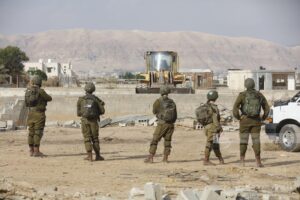
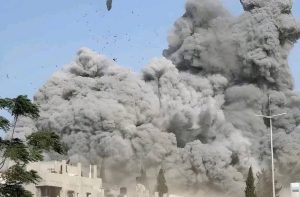
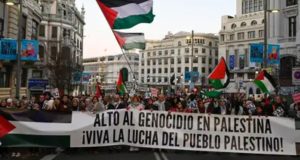
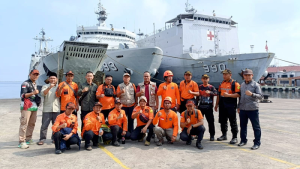
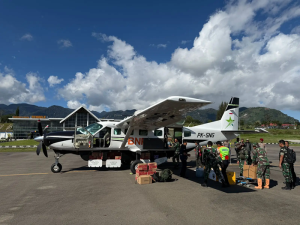
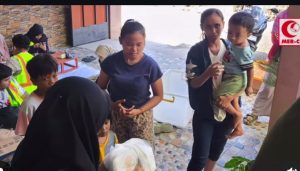
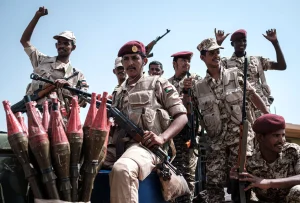
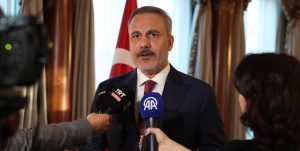

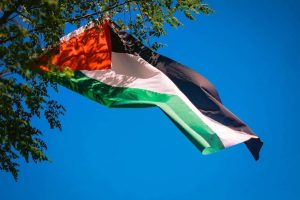
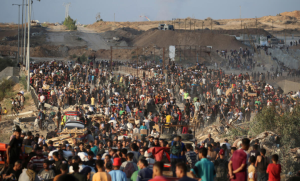
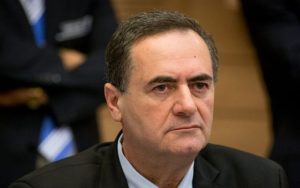






 Mina Indonesia
Mina Indonesia Mina Arabic
Mina Arabic